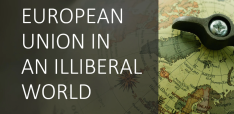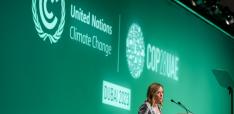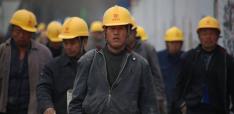Indonesia’s Danantara and the New Development Bank: A Collaborative Pathway to Climate Finance

Muhammad Zulfikar Rakhmat, Yeta Purnama, and Shafa Kalila Aryanti outline how Indonesia can set a new benchmark for sustainable development financing.
Indonesia generates over 60% of its electricity from coal, yet it has pledged to reach net-zero emissions by 2060. Meeting this goal demands more than bold statements: it requires large-scale infrastructure, substantial capital, and financial models that honor Indonesia’s autonomy. That’s where the New Development Bank (NDB) and Danantara, the country’s new sovereign wealth fund, come into play—offering not just new funding, but also greater control for Indonesia.
The NDB was established by the BRICS nations in 2015 to finance sustainable infrastructure. It plans to allocate 40% of its portfolio to clean-energy projects through 2026. Since Indonesia estimates it needs over US $200 billion in green-energy investment, tapping into NDB funding could be pivotal. The bank prioritizes projects often overlooked by private investors—solar farms in remote islands or waste-to-energy facilities in smaller cities.
Importantly, the NDB’s governance model is more balanced than that of many other multilateral banks. Each founding country—Brazil, Russia, India, China, and South Africa—holds exactly a 20 percent share and voting power, with no single nation possessing veto rights. Instead, major decisions require consensus, ensuring that no one country can control outcomes and enhancing the borrower’s leverage
By contrast, the China-backed Asian Infrastructure Investment Bank (AIIB) follows a share-weighted governance structure, where countries with larger financial contributions hold more sway. China holds around 26–30 percent of voting power—enough to block key decisions that require a supermajority—raising concerns about its ability to wield disproportionate influence.
NDB loans also come with lower interest rates than World Bank loans, often denominated in local currencies—saving Indonesia from costly foreign-currency debt while preserving fiscal independence. This could help fund critical energy projects without surrendering policy flexibility.
Danantara, launched in February 2025, is Indonesia’s ambitious new sovereign wealth fund. It consolidates stakes from seven major state-owned enterprises—Pertamina (energy), PLN (electricity), Bank Mandiri, BRI, BNI (banks), MIND ID (mining), and Telkom—bringing these assets under one umbrella valued at around US $900 billion, with an initial US $20 billion capital commitment.
The fund is led by CEO Rosan Roeslani and CIO Pandu Patria Sjahrir, and features globally renowned advisors like hedge-fund legend Ray Dalio and economist Jeffrey Sachs. Designed to resemble Singapore’s Temasek, Danantara aims to direct its significant resources into profitable green investments—spanning energy, AI, food security, and downstream industries—with strong emphasis on both financial returns and sustainability
Danantara is uniquely designed to channel financing directly from the New Development Bank into climate-friendly projects. However, the NDB has clear conditions: it will only fund ventures that are financially sound, transparent, and socially responsible. Danantara plans to support a diverse range of sectors—including renewable energy, waste-to-energy plants, electric vehicle infrastructure, and other environmentally focused initiatives. Each project is expected to deliver commercial returns comparable to those of government bonds, ensuring both sustainability and financial viability.
Yet ambition must be backed by integrity. While the NDB espouses high environmental and social standards, critics warn it still sometimes operates with opaque, top-down practices typical of older development banks. Indonesia has the opportunity to demand more. That means insisting on strict safeguards—exceeding even those of the World Bank—through rigorous impact assessments, protections for Indigenous peoples, and independent grievance mechanisms.
Transparency must also be non-negotiable. Danantara must publish detailed, project-level data—including budgets, procurement, environmental effects, audit results, and governance structures. Earlier public backlash, including protests over the fund’s creation, highlights the distrust the public feels toward opaque state mechanisms. Without clear, accessible information, Danantara risks fueling corruption fears similar to those sparked by Malaysia’s 1MDB scandal.
Indonesian civil society must be engaged from the outset. Since 2017, the NDB has conducted public consultations—but no Indonesian groups have participated. Environmental groups, labor unions, and Indigenous communities are ready to help shape proposals before final loan decisions are made. Their inclusion would lend credibility and guardrails to the process.
Finally, Danantara must demonstrate financial discipline. Early initiatives include a $4 billion co-investment vehicle with Qatar Investment Authority and an $800 million memorandum of understanding with Chandra Asri Pacific. But real success will depend on consistently delivering on time, showing measurable benefits, and attracting further capital.
Indonesia stands at a critical turning point. With NDB’s cost-effective loans and Danantara’s financing firepower, the country could lead a sovereign, sovereign-funded green energy transition. But infrastructure alone won’t suffice. What’s needed is better governance, stronger inclusion, and authentic accountability.
If Indonesia insists on high safeguards, embeds civil society in decision processes, and practices full transparency, it can set a new benchmark for sustainable development financing. Instead of externally imposed “green” models, Indonesia could pioneer a system that’s genuinely co-created at home—where financing is sovereign, development is participatory, and prosperity is just.
By doing so, Danantara and the NDB wouldn’t just erect solar panels or fund EV charging stations—they’d build a sovereign green financial ecosystem: accountable, inclusive, and powered from within, not imposed from abroad. That’s a future that deserves international support—and admiration.
Muhammad Zulfikar Rakhmat is the Director of the China-Indonesia and Indonesia-MENA Desks at the Center of Economic and Law Studies (CELIOS) in Jakarta.
Yeta Purnama is a Researcher at the China-Indonesia Desk at CELIOS.
Shafa Kalila Aryanti is a Researcher at the Indonesia-MENA Desk at CELIOS.
Photo by Tom Fisk


